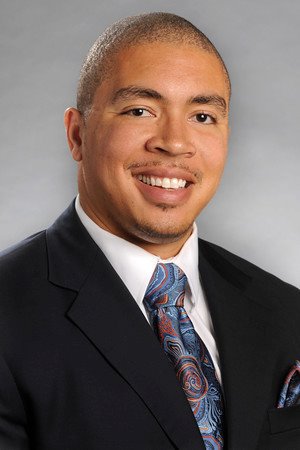Georgia House Rep. J. Craig Gordon joins the latest episode of the Commute podcast to discuss sports betting legislation, Medicaid expansion, the state budget and other hot topics headed into the 2020 legislative session.
Rep. J. Craig Gordon column: Healthcare reform goes beyond insurance coverage issues
This legislative session, the Georgia General Assembly will deliberate about a wide variety of issues, but I believe one of the most pressing needs of our state is healthcare. In addition to serving in the legislature, I oversee a home healthcare company with locations in Savannah, Macon, Albany and Columbus which allows me to see firsthand the great shortage of healthcare providers across our state, particularly in rural areas.
As a member of the Health and Human Services Committee in the State House, I have the opportunity to review healthcare legislation as it is first presented and contribute to the debate regarding its practicality and efficacy. I was greatly encouraged that the committee voted unanimously this past Wednesday in favor of House Bill 928 which, if passed, will extend the HOPE scholarship time limit after receiving a high school diploma or GED from seven to 15 years. Conditions for the HOPE scholarship have been in place for about seven years, with the time limit set by legislators as a way of cutting costs after the 2008 recession. As one of the bill’s strong supporters, I recognize this extension as a way of helping to fill the need for more physicians and nurses.
The demand is so prevalent that a recent report by The National Center for Health Workforce Analysis reveals our state is moving toward having the sixth-highest gap nationwide between the number of nurses available and the number that will be needed by 2030. And the shortage of physicians is just as dire, especially in rural areas, with some counties having no doctor whatsoever.
As college debt continues to be a major concern for many Georgians, this bill will help young professionals who had to postpone their education for various reasons, and eliminate, or at least alleviate, that burdensome debt. We’re still in the early stages of the session, but I believe HB 928 is one of the most beneficial pieces of legislation coming out of the 2019 General Assembly that could have a positive effect on our state for generations to come.
Continuing with the subject of healthcare, I strongly support House Bill 17 that bans smoking in cars while a child under the age of 13 is present. Second-hand smoke is dangerous to the health of children, containing more than 4,000 chemicals of which 50 are related to cancer. Second-hand smoke is also attributed to developmental delays in children and upper respiratory issues that often lead to hospital visits. I believe that this is common sense legislation that protects our children and shows that our state cares about their health and their future.
To lower healthcare costs for women, I’ve co-sponsored House Bill 8, which would eliminate taxes on feminine menstrual products. Products such as insulin syringes and hearing aids are already tax-free and it only seems fair that feminine products, considered a medical necessity by many, should be tax-free also. It is my hope that my colleagues will agree with me and pass this bill.
The legislation I’ve outlined are all positive steps toward helping Georgians live healthier lives without burdensome costs. It’s a privilege to work with my colleagues in the Georgia General Assembly and to represent our great community under the gold dome.
Rep. J. Craig Gordon is a Democrat who represents District 163, which includes part of downtown and much of Savannah’s westside. He is in his seventh term in the Georgia House of Representatives.
Viewpoints: Georgia legislature readies to address full agenda

Lieutenant Governor Geoff Duncan and House Speaker David Ralston will welcome the 236 legislators as they begin approximately three months of work. Duncan will preside over the Senate, the first time in 12 years someone other than Casey Cagle had that role. Ralston, meanwhile, enters his ninth year leading the House.
Legislators, including our eight-member local delegation, will address a range of issues facing the state, with bills and resolutions that pass both chambers moving on to new Gov. Brian Kemp to be signed into law. Kemp is expected to present his agenda, including his first budget, during the session’s opening week.
Pressing matters for the legislature include school safety, the state’s voting system, healthcare coverage for the uninsured and support for rural hospitals, education funding and spending, gaming and gambling, gun rights, immigration reform and rural development initiatives.
Our local delegation will be among the leaders at the Capitol. Chairmanships won’t officially be awarded until the session begins, but both our local senators, Lester Jackson and Ben Watson, are expected to lead committees, and Jackson is the head of the Democratic Black Caucus.
On the House side, Reps. Ron Stephens and Bill Hitchens expected to head committees while Reps. Carl Gilliard and Jesse Petrea are considered strong candidates.
The local legislative priorities include continued support for the Savannah Harbor Expansion Project, funding for a Savannah Convention Center expansion, extension of a historic preservation tax incentive, dollars for funding for facilities and programs at our area public colleges and universities, and pushing for a study on replacing or elevating the Talmadge Bridge.
“All I’ve ever seen in my time in the Georgia General Assembly is a delegation that works together and for the most part a legislature working together,” Rep. Jesse Petrea said. “I’m sure that will continue.”



